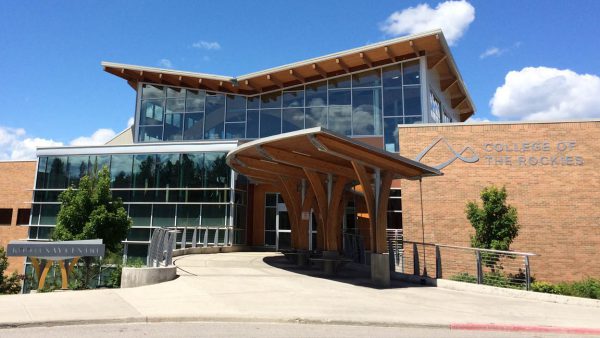VICTORIA – Aboriginal students at 14 public colleges and universities throughout British Columbia will benefit from a range of new and expanded programs to support them during their studies.
The Province is providing each of the post-secondary institutions with $75,000 in one-time funding to support Aboriginal students.
“This targeted funding provides Aboriginal students with the programming and services they will need to complete their post-secondary education and training,” said Advanced Education Minister Andrew Wilkinson. “Post-secondary education and training is the best pathway for Aboriginal students towards a prosperous future.”
Just over $1 million will go towards new and expanded programs and services that will help ensure public post-secondary institutions are welcoming learning environments for Aboriginal students. Examples include Elders-in-residence, summer youth camps, outreach to Aboriginal students and communities, peer mentoring, and workshops for faculty and staff about Aboriginal history and culture.
“This funding is aligned with our government’s plan to ensure Aboriginal students are prepared to take advantage of job opportunities in our growing economy,” said Aboriginal Relations and Reconciliation Minister John Rustad. “Aboriginal people play an important role in helping to meet the need for skilled workers in B.C.”
The funding is part of ongoing activities to support the Aboriginal Post-Secondary Education Training Policy and Framework and Action Plan. The provincial government launched this plan in 2012 to improve post-secondary education and training opportunities and outcomes for Aboriginal people in B.C.
The goal is to increase the number of credentials awarded to Aboriginal learners by 75% by 2020-21. In 2013-14, 3,241 credentials were awarded to Aboriginal learners, an increase of 23%, or 607 over 2009-10.
The Ministry of Advanced Education also provides supports to Aboriginal students through Aboriginal Service Plans, through funding for community-based training and by providing funding for emergency financial assistance and awards.
The $75,000 in one-time funding is from the Ministry of Advanced Education in support of B.C.’s Skills for Jobs Blueprint and the Aboriginal Post-Secondary Education and Training Policy Framework and Action Plan.
Learn More:
BC Jobs Plan and Aboriginal Peoples and First Nations: http://engage.gov.bc.ca/bcjobsplan/economy/aboriginal-peoples-first-nations
Aboriginal Framework: http://engage.gov.bc.ca/bcjobsplan/economy/aboriginal-peoples-first-nations
B.C.’s Skills for Jobs Blueprint: https://www.workbc.ca/training-education/b-c-s-skills-for-jobs-blueprint.aspx
Media Contact:
Richelle D. Funk
Ministry of Advanced Education
250 356-7876
BACKGROUNDER
New programs to support B.C. Aboriginal students
Fourteen B.C. public post-secondary institutions each received $75,000 in one-time funding to provide a range of new and expanded programs and services for Aboriginal students. Examples of programs and services include:
1. British Columbia Institute of Technology: The institute will use the funding to develop tools that will support Aboriginal students in their post-secondary education journey, to offer a summer math program for Aboriginal students (Grade 7 to 11) and to enhance partnerships that support transitions from secondary to post-secondary education.
2. College of the Rockies: The college will use the funding to hire an Indigenous cultural liaison who will develop and deliver services and supports for Aboriginal students and examine how services and supports for Aboriginal students can be enhanced.
3. Douglas College: The college will use the funding to hold an Aboriginal Literature Festival, to initiate a peer mentorship program for Aboriginal students and to pilot student orientation activities/events for Aboriginal students and families.
4. Emily Carr University of Art and Design: The university will use the funding to increase the number of Elders and cultural advisors at the university, to support a traditional carving mentorship/apprenticeship project and to host Aboriginal artist speakers.
5. Justice Institute of British Columbia: The institute will use the funding to hire staff to support the Indigenization of existing courses, to commission four directional house posts for the Aboriginal Gathering Place and to enhance its Aboriginal community engagement processes.
6. Kwantlen Polytechnic University: The university will use the funding to support research that assesses the needs of Aboriginal students at the university, and to deliver a comprehensive and compulsory program for faculty, staff and administration that deepens their understanding of Aboriginal history and culture.
7. Langara College: The college will use the funding to provide courses in Aboriginal carving and provide supports to students in those courses. Students in the Film Arts program will document the carving classes to further improve student understanding of Aboriginal history, and culture.
8. Northern Lights College: The college will use the funding to engage directly with Aboriginal communities, to form an Aboriginal Youth Advisory Council and to hold student orientation activities.
9. Okanagan College: The college will use the funding to increase support from Elders and cultural knowledge keepers on college campuses, to implement workshops to improve skills such as studying and peer-mentorship and to increase outreach to and recruitment of Aboriginal students.
10. Selkirk College: The college will use the funding to develop and deliver an introductory course on regional Indigenous languages, cultures and perspectives and to support the Gathering Place Elders program.
11. Simon Fraser University: The university will use the funding to provide two days a week of free counselling through the Indigenous Student Centre and to expand cultural workshops for student services staff and for Aboriginal students.
12. Royal Roads University: The university will use the funding to host a National Aboriginal Day event, to establish an Indigenous Education Leadership Team and to establish an Indigenous student collective.
13. University of British Columbia: The university will use the funding to implement a mentorship program that will pair Aboriginal students with research faculty to deepen student interests in advanced study and to support the placement of Aboriginal interns specializing in planning in positions within First Nations communities.
14. University of the Fraser Valley: The university will use the funding to hire an Indigenous Transitions Coordinator who will assist Aboriginal students with admissions, academic and support services, peer support and mentoring.
